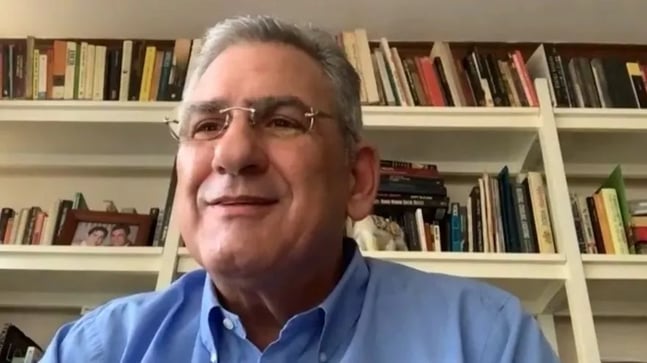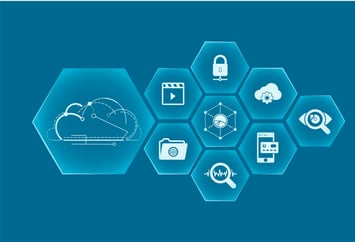 5 min.
read
5 min.
read

José Campa studied psychology, but short after realized that he was passionate about the business world. After being the General Manager for a Latin American technology company, he was offered the position of Submanager at TowerBank and even if at first, he doubted about his capacity to take that responsibility, some time ago he became the CEO of this booming bank based in Panama.
Today, he is leading the bank’s transformation in all senses: service, communication, and internal culture, with all the challenges and satisfactions involved. Among other things, he dedicates his free time to reading and working on his organic garden.
IC: What were your first years at Towerbank like?
J.C: It was a great surprise. I had a perception of banking as something very boring, too operative and, opposite to that, it’s an extremely complex business, where you must develop skills to make decisions about investments, manage credit risk, operative risk and handle the bank’s image: marketing.
You need to have a quite open vision and understand that your main goal is to create the conditions for the institution to be able to develop and evolve continuously. It was very helpful to come from the corporate world. However, there’s a great difference.
In a company, you’re putting at risk the stakeholder's capital, while in a bank, you must quickly understand that you are putting at risk the customers’ capital, and your responsibility is greater. I became the general manager in 2004, and they have been 14 spectacular years.
IC: What do you think that have been the most important changes in banking in the last years?
J.C: Actually, banking hasn’t changed as much as it should have. At least in a country like ours, where we still don’t have a proper regulatory environment and we are stuck in the past in some respects.
Anyway, Panama has a high level of banked people in urban areas, where 70% of the economy is. Outside of urban areas, the level of banked people is low. Today, all bankers have a sense of urgency. We tend to overestimate the technology impact in the short term and underestimate it in the long run.
The transformation and disruption of the business model is definitely obvious, but I think that we are still in that phase where we understand that digitalization is an end, when in fact is a means, it’s the technology that you use for something.
It's true that even more changes are coming. If we are not prepared, we won’t be relevant. Today, more than design, what we need is future thinking. And it’s something that we are learning to do.
IC: What do you think about Towerbank’s digital transformation status compared to other institutions?
J.C: I’d say we are halfway there, trying to optimize all integrations so that processes are increasingly more automated without the need of human intervention.
It sounds great to say that you are “innovative”, but actions speak louder than words, you should even teach people how to think. We cannot predict the future, but you can anticipate certain scenarios and dream about them, find ideas that might work in the future.
|
|
"You cannot just think about the present, you need to teach people to think strategically, to solve problems, to think about how to design experiences". |
IC: How are you working on this future thinking?
J.C.: We’ve created a unit that we call “business transformation” where we have people working on data to capture customer information from different sources, analyze it, etc. In this unit, each department has to offer one person for one month to work and start creating this culture, stop being just bankers and understand people more.
IC: How relevant do you think is for Towerbank to differentiate from other banks?
JC: Honestly, I think that in the banking industry, you need to be very careful with differentiation efforts, because today the banking service is perceived as a commodity, where the price is the most important value, or value criteria. If I’m going to make a deposit, I want to be with the bank that pays more for it. If I’m going to ask for a loan, I want to be with the bank that offers the best rate. If you start saying “well, now we are going to have a nicer bank and we’ll have this app, and these other things...” at the end, I think that’s not what attracts the customer, because they are all doing pretty much the same thing, some of them more quickly and some of them more slowly.
I think that the key is to identify: What does this group of unattended customers need? One of the reasons why we bought IC Banking from Infocorp, the new version, is that it has very well developed the e-banking for companies compared to others who are more focused on the end customer.
We are very interested in assisting entrepreneurs. The number one policy for banks is “the company must have at least three years of operations”, that leaves out any entrepreneur and it needs to be changed.
We are creating a business incubator, an accelerator. This is the strategy we’d like to begin with. We will offer them legal support, help them open a company, and guide them to obtain authorizations, etc.
IC: Why do you think customers choose Towerbank nowadays?
J.C: I think that the main strengths that our culture has at Towerbanks is the customized service. It’s a bank with very good reputation, but from the brand point of view, it’s a bank perceived as exclusive, as in “the bank is so exclusive that I’m not sure if it wants to work with me”.
Since we have been a corporate bank, and only in 2005 we started with retail banking, we are pretty recent. But how do we compete? In knowledge and response time. That’s how we manage to establish very long-lasting relationships. We have had Latin American customers for 15, 16 and 17 years and that’s our key strength.
IC: What do you think have been the most important takeaways during this past year or two that have started accelerating this digital transformation process?
J.C: The first one is realizing that you don’t know anything, and that’s very important. Second, you must learn and experience things in order to differentiate and identify possible alternatives that you have, because everyone is talking about something that you don’t know deeply about.
They can sell you anything and you realize that you’ve bought a monster three years later. You see a lot of people who buy a module here and a module there, they deploy it or license it and they haven’t done anything, they've just packed something. We are very satisfied with Infocorp.
It’s also easy to digitalize but it’s difficult to monetize these products and services. I’m speaking about how I feel, it’s very subjective. Furthermore, even if algorithms are important, I try to never forget the human factor, empathy, creativity, and principles.
IC: To round up, please tell us which book you would like to recommend. The one that you say: “Anyone working at a bank should read”.
|
J.C: The one I’m reading right now: “The Ministry for the Future”. It’s about a world in 20 years, where we find ourselves in a global warning crisis presented in a fantastic way, mixing the novel with a philosophic and technical essay. It’s quite interesting, I’m completely into it and I totally recommend it. I believe it’s a great book. |
|
The other book I’m reading is a history book, about the post-war era and the world order created after that. By Eric Hobsbawm.
IC: Do you have other hobbies besides reading?
J.C. Yes! I have a certified organic farm where I do everything during weekends. My son loves to go and so do my parents. It’s almost a family project. And the other hobby is a sport: I have a sailing boat and I like to go sailing on the weekends that I’m not at the farm.



